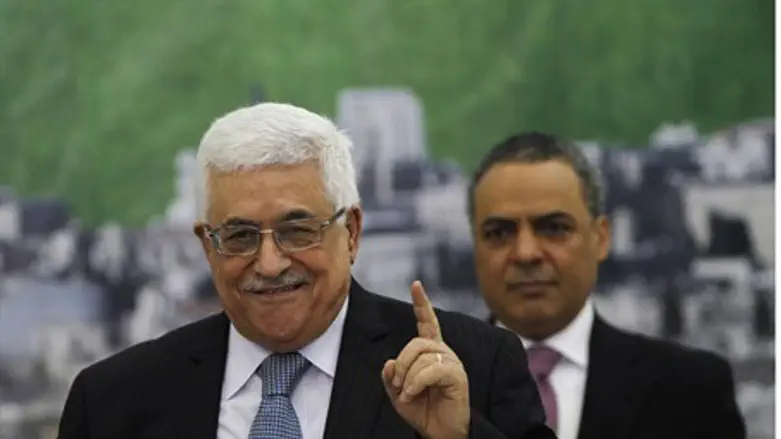
Chief representative of the Palestinian Liberation Organization (PLO) in Washington D.C. is warning United States lawmakers against retaliating for last month's statehood vote at the United Nations, maintaining that doing so would only hurt U.S. credibility in the region.
“History has shown time and again that the language of threats, financial pressure, and punitive measures simply does not work,” Maen Rashid Areikat wrote in a letter sent to U.S. lawmakers. “Engagement and dialogue is the only way to express the views of Congress. Biased and one-sided resolutions cannot contribute to an atmosphere that is conducive for a political resolution to the conflict.”
Areikat’s letter came in response to calls by a bipartisan group of U.S. lawmakers, urging President Barack Obama to close the PLO office in Washington D.C.
Reps. Ileana Ros-Lehtinen (R-Fla.), Howard Berman (D-Calif.), Edward Royce (R-Calif.) and Eliot Engel (D-N.Y.) are circulating a letter in response to the Palestinian Authority’s successful bid at the United Nation, urging that the U.S. to utilize “every means at our disposal to ensure that this General Assembly vote does not serve as a precedent for elevating the status of the PLO in other UN bodies or international forums.”
The UN resolution, which approved the PA bid for upgraded status as non-member observer state, granted the it de facto status as a sovereign state based on its own territorial claims, thus violating peace accords and enabling it to circumvent final status negotiations with Israel. Despite adamant disapproval by Israel and the U.S., the bid was overwhelmingly approved by a vote of 138 to 9, with 41 abstentions.
“[A]llow me to point out a fact that may escape some of you: the genie is already out of the bottle; it cannot be put back in,” Areikat wrote in his letter. “There is no action that can be taken by anyone, Congress included, to change our UN status. The world spoke in a unified voice; Palestine is now recognized as a non-member State at the UN.”
“We sure can disagree but to express your disagreements by applying pressure serves no one’s interests,” he wrote.